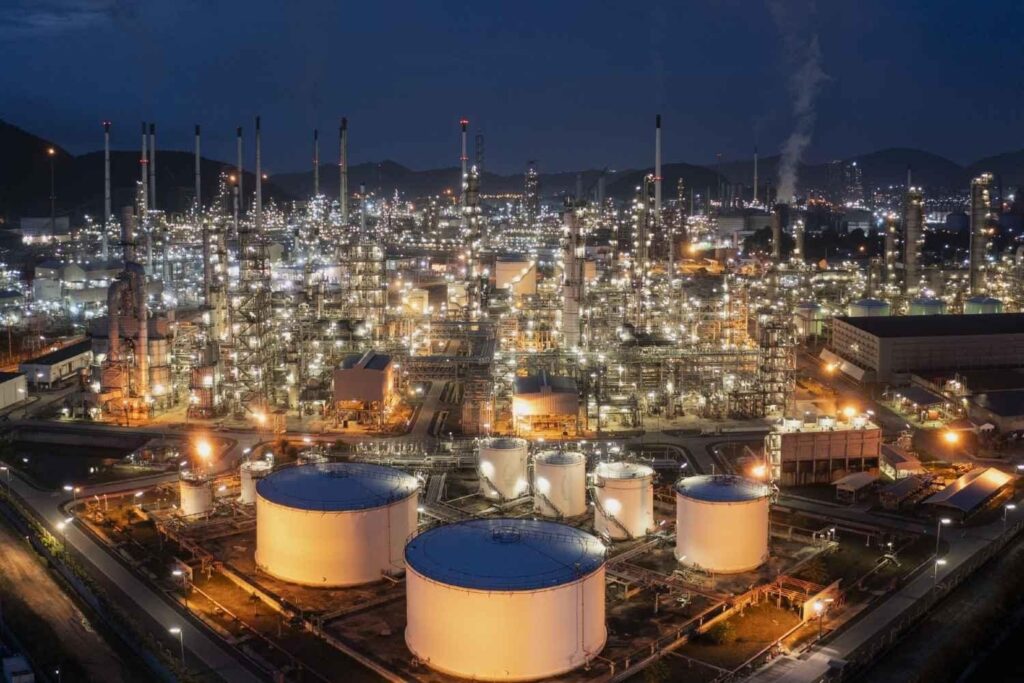In Summary
- Africa holds over 125 billion barrels of proven oil reserves, shaping economies and global trade. While some countries have discovered new reserves, others face declining production due to mismanagement and political instability.
- In 2025, Libya remains Africa’s oil leader with 48.36 billion barrels. Emerging producers like Uganda are making their way into the list.
- Despite global efforts to reduce dependence on fossil fuels, Africa’s oil-rich nations still wield significant influence, attracting foreign investors and driving economic policies.
Deep Dive!!
What does it mean to be one of Africa’s oil giants? It’s not just about how much crude is underground—it’s about production, infrastructure, and how well a country manages its reserves. Some African nations sit on billions of barrels but lack the technology or political stability to fully capitalize on their oil wealth.
As of 2025, the ranking of Africa’s top oil-rich countries reveals both long-standing players and surprising newcomers. Here are the top ten African countries with the most proven oil reserves this year, according to reliable sources and Global Firepower.
10. Chad
Chad holds 1.5 billion barrels of oil, with petroleum being its primary source of revenue. However, the country’s landlocked position and political instability make exports challenging.
Despite these difficulties, Chinese investment in Chad’s oil sector has helped sustain production, ensuring the country remains among Africa’s top 10 oil-rich nations.
9. Gabon
Gabon’s 2.0 billion barrels of oil have historically supported its economy, but declining production has reduced its global significance. The government is now focusing on offshore drilling to attract foreign investors.
By 2025, Gabon has expanded its oil refining capabilities, reducing its reliance on crude exports and shifting toward refined petroleum products.
8. Uganda
Uganda is a new entrant into Africa’s oil elite, boasting 2.5 billion barrels of reserves. The long-delayed East African Crude Oil Pipeline (EACOP) has finally been completed, allowing Uganda to transport crude to international markets.
Despite initial setbacks, Uganda’s government has secured deals with foreign investors, ensuring the country benefits from its oil wealth.
7. Republic of Congo
The Republic of Congo holds 3.0 billion barrels of proven oil reserves, making it one of Central Africa’s key oil producers. Oil exports account for over 75% of the country’s revenue, though political instability has hindered growth.
In 2025, offshore drilling projects backed by foreign investors have increased, helping stabilize oil output despite domestic challenges.
6. South Sudan
South Sudan’s 3.75 billion barrels of reserves play a crucial role in its economy, with oil making up 90% of government revenues. The country depends on pipelines through Sudan, creating vulnerabilities in its export system.
However, new production-sharing agreements in 2025 have led to an increase in output, ensuring a more stable forex inflow.
5. Angola
Angola has 7.78 billion barrels of proven reserves, maintaining its position as one of Africa’s largest oil producers. Unlike many other nations, Angola has diversified its economy, reducing reliance on oil exports.
Despite a slight decline in production, new offshore discoveries have boosted investor confidence, ensuring Angola remains a key player in Africa’s oil sector.
4. Algeria
Algeria, with 12.2 billion barrels of reserves, is not only a major oil producer but also Africa’s top natural gas exporter. Its strategic location and well-developed energy sector make it a key supplier for Europe.
By 2025, Algeria has ramped up investment in both oil and gas production, strengthening its position as an energy powerhouse.
3. Egypt
Egypt holds 12.3 billion barrels of proven oil reserves, with a well-diversified energy sector that includes natural gas and renewables. The country has leveraged its strategic location and advanced refining infrastructure to boost exports.
The government’s push for foreign investment in 2025 has further improved production efficiency, solidifying Egypt’s position among Africa’s top oil-rich nations.
2. Nigeria
Nigeria remains Africa’s second-largest oil reserve holder with 36.89 billion barrels, but challenges such as oil theft, outdated infrastructure, and security concerns continue to affect production.
In 2025, new policy reforms and investments in the Niger Delta aim to revive Nigeria’s oil industry, but uncertainties remain over long-term sustainability.
1. Libya
Libya tops the list with 48.36 billion barrels of proven reserves, the largest in Africa. Despite ongoing political instability, the country’s vast oil wealth keeps it at the forefront of Africa’s energy sector.
With major international players still engaged in Libya’s oil industry, production remains high in 2025, securing its position as the continent’s oil leader.
https://www.africanexponent.com/top-10-african-countries-with-the-largest-proven-oil-reserves-in-2025/


